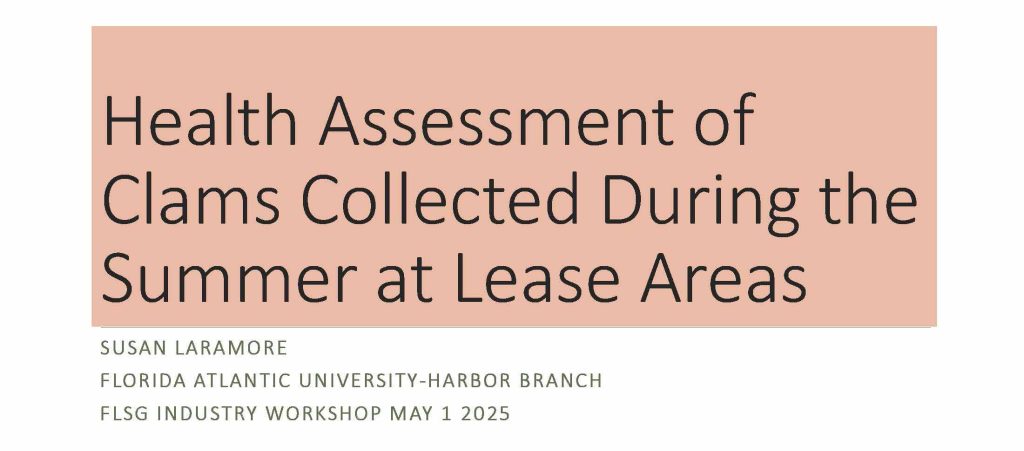
Investigator: Susan Laramore, Florida Atlantic University-Harbor Branch
Objectives: This study determines how environmental changes seen during summer impact clam health by employing bacterial and histological analysis. Taking an integrated approach, the presence of bacterial and other disease-causing organisms in clams in response to environmental changes that occur during the summer are documented at two lease areas. In addition, physiological condition and responses, such as changes in the digestive tract tubules and presence of food in the gut, are evaluated.
